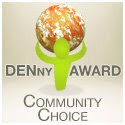
"I can guarantee that the job I hire someone to do will change or may not exist in the future, so this is why adaptability and learning skills are more important than technical skills." (Clay Parker of the manufacturer BOC Edwards quoted in Tony Wagner's Global Achievement Gap, 2008, p30).
As a technology specialist, I may see the world a little differently than other educators who have taught as long as I have (30+ years) because most of them are looking to retire. I am looking for the new tool or best practice that will optimize learning for each student I come in contact with. Our job as teachers is to facilitate learning with 21st century tools.
When I was in 4th grade at the University of Memphis "Campus School." There was a big debate among our teachers, parents, and administrators about what type of ink pen we should bring to school. REALLY! We were learning cursive with the traditional ink cartridge fountain pens. (actually, some student brought bottles of ink and pens that sucked up the ink, instead of cartridges!) Some folks thought we should move to the new "Bic" pens because they were less expensive, but our ancient teacher thought we would not learn properly with those newfangled pens. We needed to use the traditional fountain pen to establish proper penmanship habits like "how to hold then nib at the proper angle." YES, I am not making that up.
Isn't that a parallel to some of the debates today? Textbook versus digital content. Teacher as the center or on the side.
Ultimately it's not about learning technology, but learning to learn with technology. The tools you choose are less important than what students are doing with them. Yes, we skill need to teach keyboarding and word processing, but students need them in the context of learning content. They need a reason for learning.
We should spend a limited amount of time teaching kids tools, and much more
time trying to figure out how to use technologies to foster 21st century
competencies in our students. In professional development teachers always want a "handout." In the classroom, today the 21st studentswant us to give them the tools or the website and the goal of the finished product, then move out of their way.
Look at this comparison chart of the 20th century classroom versus the 21st century classroom.
The focus should be on the learning, not on the tools.
So the essential question...
What traits or skills do I need as an educator to meet the needs of the 21st century learner?
As an educator, I need
- Content Knowledge
- Strong classroom management
- Sound instructional practices
- Personal technology skills
- Patience
- Curiosity/Zest for learning
- Creativity/Innovation
- Flexibility
- Maintenance of current ed tech trends and student use of technology
- Willingness to develop, share, collaborate within a Professional Learning Network












No comments:
Post a Comment